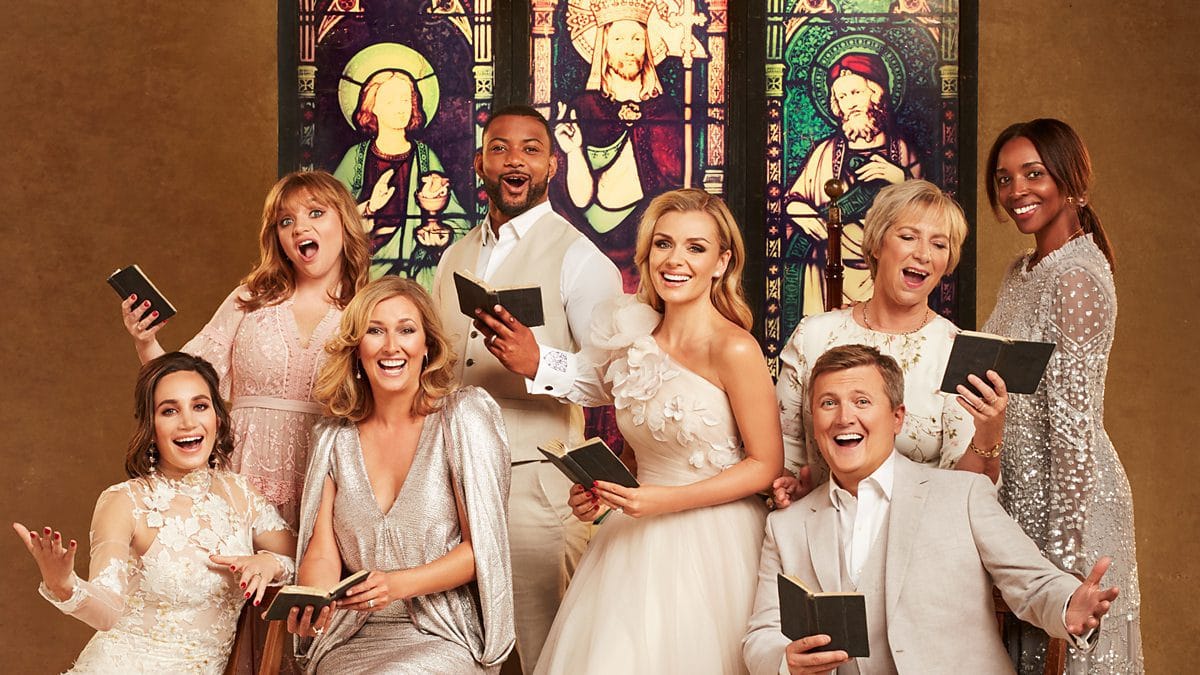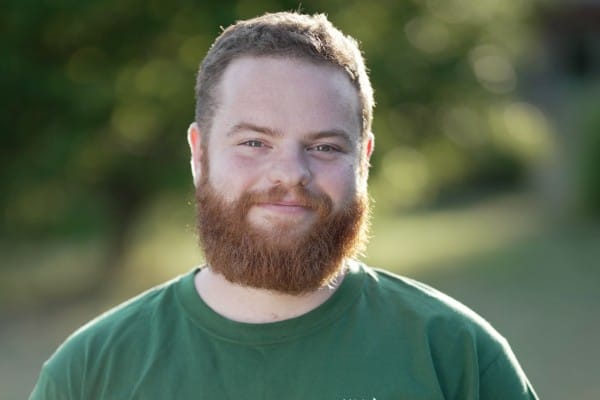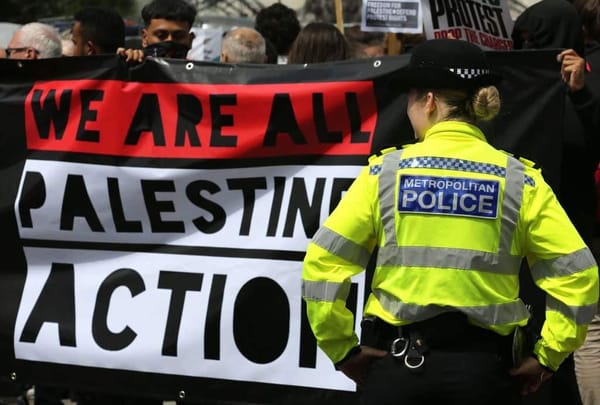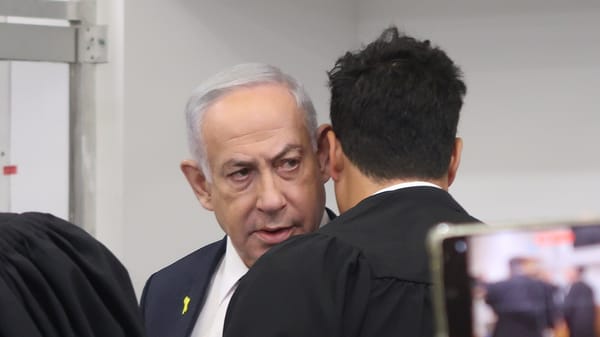Your own personal Jesus
The Beeb has a complicated relationship with religion.

I have been listening to breakfast radio since I was 11. I would set my stereo alarm to 6.21, subcontracting my morning routine to Radio 1’s presenters, producers and engineers. Their job, I eventually learned, was no easy one: for a year at university, I hosted a breakfast show on my student radio, though mine started at a far more civilised 9am.
15 million morning routines belong to BBC Radio 2, which has long broadcast Europe’s most listened-to breakfast show. All the more interesting, then, that in the midst of Zoe Ball’s slot are three minutes that are not about music, prizes or celebrities, but religion.
One of the Breakfast Show’s longest-standing features – dating back to the show’s origins in the late 1960s – Pause for Thought invites a religious leader to talk about their faith. It is broadcast during three weekday shows on BBC Radio 2: at 2.30am for OJ Borg’s overnight show; at 5.45am and 9.15am during Vanessa Feltz’s Breakfast show; as well as on local and regional stations, all with different speakers. Since 2021, I have been one of them.
The BBC broadcasts over 7,000 hours of religion and ethics programming across its TV and radio channels each year, more than any other broadcaster in the UK. There’s Radio 4’s Thought For The Day, the slightly more serious cousin of Pause for Thought; The BIG Questions, on BBC One, which presents moral and religious conundrums like “Has religion had its day?” and "Do our genes define us?" Then there’s the more explicitly Christian content, of course, the best known being Songs of Praise, the world’s longest-running religious TV show and soundtrack to Sunday morning hangovers since 1961.
Much like Sunday trading hours, the BBC’s output has long reflected Britain’s Christian character. When it began broadcasting in 1927, its Sunday programming began in the afternoon to allow people to attend church in the morning (the rest of the day was taken up with religious services, moral discussions and classical music). But the BBC’s religiosity wasn’t simply a reflection of the nation’s – it was the creation of its earliest employees.
John Reith took over the British Broadcasting Company – the short-lived commercial company that preceded the British Broadcasting Corporation – in 1923, becoming its first and longest serving director general. Many of the ideals of the BBC as a public service broadcaster, funded by the state and free of advertising, have remained to this day and have been exported around the world. It was Reith who first conceived that the BBC’s role should be to “inform, educate, and entertain”, the so-called Reithian principles that have stayed in-tact in the corporation’s mission statement for nearly a century, surviving 10 governmental reviews of the royal charter.
It was also Reith who laid the BBC’s religious roots. The son of a Presbyterian minister, Reith created the BBC’s first coat of arms in 1927, which featured the motto “Nation shall speak peace unto Nation”, adapted from the Book of Isaiah and known to Jewish audiences as the song ‘Lo Yisa Goy’. The motto was replaced, in 1934, by “Quaecunque”, meaning “whatsoever” in Latin, most likely inspired by St Paul's Epistle to the Philippians that begins “Whatsoever things are honest". The original motto was, however, returned in 1948.
Neither lasted long: the BBC’s familiar “three bricks” logo, necessary for the corporation’s shift from a British institution to a global brand, eschewed religious overtones under the leadership of Reith’s more secular colleagues and successors. Yet as my own employment, as a Jewish organiser, by the corporation suggests, the BBC retains a commitment to religion, one that can be found in its royal charter: “To reflect, represent and serve the diverse communities of all of the United Kingdom’s nations and regions” and “To reflect the United Kingdom, its culture and values to the world”.
This secularisation has continued even as levels of religious intolerance have increased. The BBC’s religion programming has had its budgets repeatedly slashed: in 2003, quotas for religious content were cut; in 2015, a 26% cut in religious funding to £13m. Religion and ethics programming was among the first to be outsourced by the BBC. It’s hard to expand religious literacy and tackle intolerance amidst perennial budget squeezes.
Nevertheless, in 2017, the BBC published a report in which its then director general Lord Hall said that religious programming was integral to the broadcaster’s output because “if we truly want to make sense of the world, we need to understand the systems of belief that underpin it”. The same report highlighted that, while attendance in the Church of England may be waning, across the world “84% of people affiliate with a religion” with religious belief “predicted to rise above 90% over the next few decades”. Hall called for the BBC to diversify its religious programming to incorporate other faith traditions.
Pause for Thought carries a reassuring, formulaic lightness. Presenters will exchange patter with their speakers, asking them to comment on the topics the audience is texting in about – “Do you know someone who shares a name with a celebrity?” “What are the signs for you that summer has started?” – before inviting them to start their monologue. Most have a stated theme, but some do not. There is a truly exciting diversity among the speakers, with many denominations of Christians, Jews, Muslims, Hindus, Buddhists, and others participating. You will hear senior clergy as well as lay leaders like me.
The formula goes like this: you open with a vivid picture of a relatable story from the speaker’s life (a technique I’ve spent so long honing that you’ll see I used it on you). From here, you’ll link your personal story to a lesson from your faith. The aim is to chart a course between the specific enough about your faith to interest your audience, while not being so specific that you alienate them. Finally, you tie this message back into your personal story.
There is also a common set of features that the listener will not hear. The speaker will not refer to you, the listener, to avoid the feeling of being preached to. And while “values” will be referred to regularly – I have spoken about the importance of helping refugees, and protecting the environment – the BBC’s impartiality means that straying too far from abstract principles to anything overtly political is not allowed.
Religion on the BBC, then, is confined to a twee and urbane realm, modelled on a middle-class, Protestant vision of faith as a personal relationship with God – not as the social and cultural ties that bind human society, or a tool for the collective solidarity of people made in the image of the divine.
Pause for Thought is a metaphorical cup of tea with the vicar; an antidote to those who see those of other religions as a threat. What it does not do is show how religion can bring together hundreds, thousands, even millions of people through a shared set of values, be it Am Yisrael or its Muslim counterpart, the Ummah, in order to create radical change.
Amos Schonfield is introduced on BBC Pause for Thought as an activist and community builder based in London. What he can’t mention is that he leads Mavar, a charity for people exploring life outside of strictly orthodox Jewish communities, and Our Second Home, a youth movement for refugees and asylum seekers.





